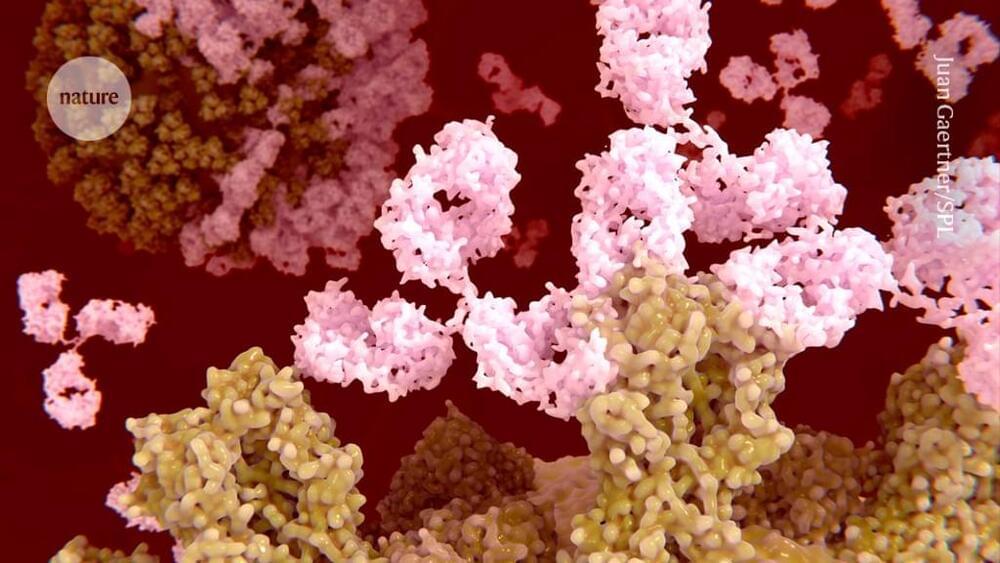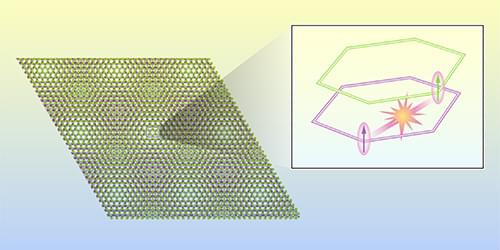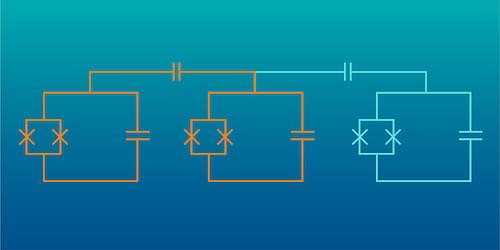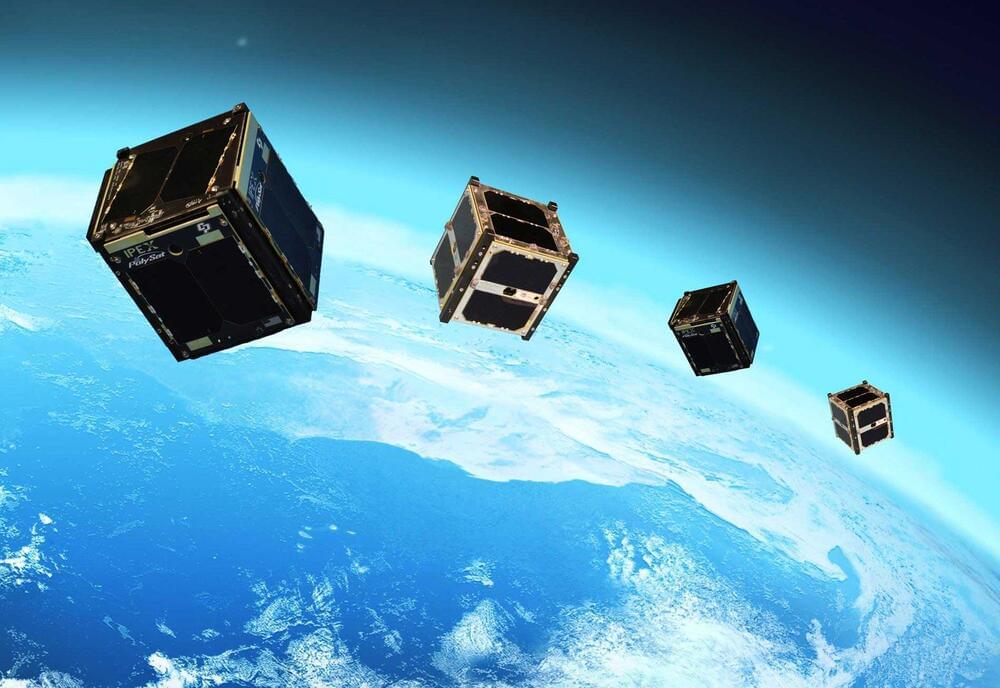Modified protein-design tool could make it easier to tackle challenging drug targets — but AI antibodies are still a long way from reaching the clinic.
From NVIDIA efficient video diffusion models via content-frame motion-latent decomposition.
From NVIDIA
Efficient video diffusion models via content-frame motion-latent decomposition.
Video diffusion models have recently made great progress in generation quality, but are still limited by the high memory and computational requirements.
Join the discussion on this paper page.
🦠💊🌍 https://www.news-medical.net/news/20240321/Rising-antimicrob…action.asp
Review delves into the rising challenge of antimicrobial resistance in sexually transmitted infections, underscoring the need for innovative treatments and the critical role of global surveillance in managing diseases like gonorrhea and syphilis.
The unexpected observation of an aligned spin polarization in certain twisted semiconductor bilayers calls for improved models of these systems.
If you take two overlapping tiled patterns and rotate one with respect to the other, new patterns will emerge. This motif has been used in art and architecture for millennia. Over the past 15 years, materials physicists have used a similar strategy to realize new material properties. In one implementation, two material monolayers with a hexagonal atomic lattice are overlaid with an angle between the two lattices, resulting in an additional long-range lattice structure known as a moiré pattern. In 2021, scientists observed the so-called quantum anomalous Hall (QAH) effect in such a twisted bilayer, formed of MoTe2 and WSe2 monolayers [1]. Now Zui Tao at Cornell University and colleagues have used optical spectroscopy to study the interaction between these two monolayers when they are in the QAH state [2].
Loop-shaped structures called vortex rings are remarkably stable and are seen throughout nature, appearing as bubble rings blown by dolphins and smoke rings emitted by erupting volcanoes. Recently, scientists observed vortex rings made from electron spins in magnetic materials. These structures have properties that make them attractive for use in energy-efficient data storage and processing. Now Yizhou Liu and Naoto Nagaosa at the RIKEN Center for Emergent Matter Science in Japan have proposed a way to create such magnetic vortex rings on demand [1].
Liu and Nagaosa considered a nanometer-scale cylinder made of a “chiral” magnetic material, one whose magnetic structure differs from that of its mirror image. The magnetic vortex rings that form in such a system have more diverse topologies and greater stability than those that form in other systems. In numerical simulations, the researchers injected a pulse of electric current into their chiral magnetic cylinder through a circular trench etched into the cylinder’s top surface. They then studied how the current pulse affected the material’s spin configurations.
Liu and Nagaosa observed a chain of interconnected magnetic vortex rings form along the length of the cylinder. Varying the duration and amplitude of the injected current pulse, they were able to control the topology of the vortex rings and their connections. The researchers say that the next step is for experimentalists to replicate these findings in the lab. They also suggest that their technique could be adapted to produce magnetic vortex rings in other physical systems, such as liquid crystals and Bose-Einstein condensates.
To operate reliably a quantum computer needs to correct the errors introduced into the system by noise in its hardware. Error-correction approaches typically use “logical” qubits, which are qubits made up of as many as a few thousand “physical” qubits. Logical qubits are much less error prone than physical qubits, but the hardware overhead complicates the realization of fault-tolerant quantum computers based on this approach. Now a team led by Harry Levine and Oskar Painter of the Amazon Web Services Center for Quantum Computing in California has demonstrated a new qubit design with built-in error-detection ability [1]. Painter says this qubit could serve as an alternative building block for error-correcting schemes, substantially reducing complexity.
The demonstrated qubit is an “erasure” qubit, one in which the most likely error type involves the loss, or erasure, of the qubit’s state [2]. This error is easier to spot and correct for than other qubit errors, such as those that flip the qubit’s state. Researchers have previously demonstrated erasure qubits made from single atoms. The new study makes the leap to transmons, the superconducting qubit used in the quantum processors developed by Google and IBM.
The erasure qubit of Levine, Painter, and colleagues contains three transmons. Two of the transmons are coupled together and store a qubit’s worth of information in a single, shared microwave photon. The third transmon reveals the loss of the photon—the erasure—through a shift in its operating frequency. The researchers show that in this qubit erasure errors are the dominant error type and can be detected in real time. The researchers now plan to use their new qubit to build logic gates and error-correcting circuits.
Astrophysicists have a cerium problem—models predict that certain stars should contain much less of this heavy element than astrophysical observations find. Recently performed experiments at CERN’s neutron time-of-flight (n_TOF) facility have widened the gap between theory and observations by 20% [1]. The researchers behind the work say that the results highlight the need for high-accuracy measurements of the nuclear properties of atoms, as well as for updated nucleosynthesis models of element formation. “Our experiment made the problem worse,” says Simone Amaducci of the INFN Laboratori Nationali del Sud, Italy. “That was unexpected, but it’s also interesting because it means there is something we don’t understand about how nucleosynthesis happens.”
Most of the Universe’s heavier elements form in stars via one of the so-called neutron-capture processes, in which an atomic nucleus absorbs one or more neutrons. In the slow neutron-capture process, or “s process,” the absorptions are spread out in time. As such, each absorption event results in either a stable nucleus with the same number of protons but one additional neutron or an unstable nucleus, which then radioactively decays to produce the nucleus of the next element in the periodic table—the one with one additional proton.
Using currently available models of the s process, researchers have correctly predicted the abundances of elements as heavy as barium (56 protons), lanthanum (57 protons), praseodymium (59 protons), and neodymium (60 protons) in stars that are known to be enriched via the s process. But the models appear to break down for cerium (58 protons), as the abundance predictions for this element in some low-mass, low-metallicity globular cluster stars have disagreed by up to 30% with observations. “This discrepancy is very strange, as the theory works for the neighboring elements,” says Sergio Cristallo, a team member who works on problems related to neutron capture at the National Institute of Astrophysics in Italy. “There is nothing in the models that should cause such a discrepancy just for one element.”
Scientists from China and Japan have identified unique features of the flow field in the lower mantle. Through their study of seismic anisotropy in the upper section of the lower mantle beneath the Philippine Sea Plate, they discovered that the ancient lower mantle flow field is still preserved there.
The study was published in Nature Geoscience.
The lower mantle is an important layer of the Earth and may play an important role in the evolution and material cycling of Earth’s interior. It is generally believed to be not only the final destination of subducted slabs, but also the birthplace of mantle plumes, which are two major styles in the evolution and material cycling of the Earth’s surface and interior. However, our knowledge of the characteristics of the flow field and geodynamics of the lower mantle is still deficient.
NASA ’s CubeSat Launch Initiative (CSLI) is sending four CubeSats to the International Space Station to advance space-based technologies in solar power, gamma-ray burst detection, and water monitoring. Developed in collaboration with universities and NASA, these satellites aim to enhance our understanding of cosmic phenomena and Earth’s environmental dynamics.
NASA’s CubeSat Launch Initiative is sending a group of four small satellites, called CubeSats, to the International Space Station (ISS) as ELaNa 51 (Educational Launch of Nanosatellites). These small payloads have been developed by NASA and universities and will be deployed from low Earth orbit.
Once circling Earth, the satellites will help demonstrate and mature technologies meant to improve solar power generation, detect gamma-ray bursts, determine crop water usage, and measure root-zone soil and snowpack moisture levels.









